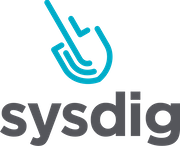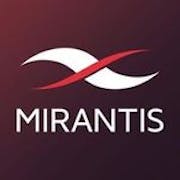Looking for the best container security software? Check out our comprehensive buyer's guide to find the right solution for your needs. Our expert reviews and comparisons will help you make an informed decision. Get started now!
Containerization has revolutionized the way we develop and deploy software, bringing unprecedented efficiency and flexibility to modern IT operations. However, this new paradigm also exposes organizations to a host of security challenges, making container security software an indispensable tool in the modern IT security landscape. Whether you are a small start-up or a global enterprise, container security is critical to safeguarding your applications, data, and reputation. Therefore, it's vital to choose the right one that not only meets your compliance and governance needs but also helps you keep pace with the dynamic threat landscape. In this buyer's guide, we'll provide you with essential insights and recommendations to help you make an informed decision and secure your containerized environment effectively.
What is container security software?
This is a tool that helps businesses securely manage their containerized files, applications, and systems. It is designed to protect containerized workloads from potential threats within the container infrastructure. With the continued shift towards cloud-based computing, container security software has become increasingly necessary for companies seeking to ensure their containerized applications remain secure. Over 79% of enterprises have or plan to have container-based applications in production in the near future.
Here are some common use cases for this solution:
Malware scanning: It helps detect and prevent threats such as viruses, malware, and other cyberattacks by scanning containers for malware.
Vulnerability management: Another main use case for this system is vulnerability management. It helps developers identify and address vulnerabilities in containerized applications and systems before they can be exploited.
Overall security: It can also provide extra layers of protection for container infrastructure, including access control and authentication, to help prevent unauthorized access. This essential platform is used by a variety of companies, from startups to large corporations, that use containerized applications to manage their workloads.
Some of the typical industries leveraging this advanced technology include:
Software development companies: Software development organizations who use containerized applications to manage their processes use container security apps to protect and secure their applications and systems.
Financial institutions: Financial institutions and banks that use containerized applications to run their finance applications leverage this advanced system to ensure the security of their financial data.
Healthcare providers: Healthcare providers that rely on containerized systems to run their electronic health record systems and other healthcare-related applications use container security software to protect and secure sensitive patient data.
What are the benefits of a container security system?
Security is a key concern for any business today, especially when it comes to protecting sensitive data from cyber threats. Businesses are using containers to deploy their applications quickly and efficiently. However, container security is often a major concern for organizations trying to adopt this new technology. This software is a crucial tool that can help organizations overcome these security challenges and protect their data.
Here are some of the key benefits:
-
Improves security: The most significant benefit of this solution is enhancing your security posture. It provides a comprehensive security solution for organizations using containers to deploy their applications.
-
Simplify compliance: It simplifies regulatory compliance by providing security policies.
-
Provides threat protection: It also provides a mechanism for threat detection, mitigation, and protection. It protects against cyber attacks like malware, DDoS attacks, and other security threats.
-
Provides visibility: A security system also provides real-time visibility into the container environment, making it easier to monitor and manage containerized applications.
-
Saves time and effort: Deploying and managing containers can be complex and time-consuming. However, container application brings automation capabilities into the picture to make it easier for organizations to manage their containers effortlessly.
Container security software offers a comprehensive solution for businesses to secure their container environment and protect their data from cyber-attacks. It simplifies regulatory compliance, provides threat protection, real-time visibility, and saves time and effort. By adopting it, businesses can ensure that their container infrastructure is well-protected.
10 key features of container security software
Containerization has revolutionized the way developers build, test, and deploy applications. This technology has become increasingly popular due to its efficiency and portability. However, with the rise of containerization comes the need for an advanced tool, which is essential for protecting your applications from cyber threats and vulnerabilities.
Here are some of common features of a container security tool:
1. Vulnerability scanning: It can scan images and identify any known vulnerabilities in the container image.
2. Compliance management: It can enforce regulatory compliance by ensuring containers adhere to the necessary standards.
3. Runtime protection: It can monitor container activity in real-time, detecting any malicious activity and stopping it before it can do any damage.
4. Access control: This tool can control access to containers, ensuring only authorized users and systems have the right to access containers.
5. Encryption: The app can encrypt sensitive data in containers, making it difficult for unauthorized users to interpret or access.
6. Authentication: A container security application can verify the authenticity of containers, ensuring that they come from trusted sources.
7. Auditing: It can track and record all container activity, enabling security teams to investigate any attacks or suspicious activity.
8. Automated policy enforcement: This solution can automatically enforce security policies, ensuring that every new container is secured before being deployed.
9. Integration: It can integrate with other security tools to provide a comprehensive security solution.
10. Centralized management: It can provide a centralized dashboard that allows security development teams to manage container security across the organization from a single location.
These are just some of the many features of this platform that can help protect your applications from cyber threats. By implementing one, your organization can ensure the security and reliability of your container environment.
Things to consider when investing in a container security platform
Container security has become a critical issue for businesses that use containers to deploy applications. Containers can offer a quick and efficient way to package software, but they also introduce new risks that need to be addressed through a container platform. But with a wide range of solutions available in the market, choosing the right one can be a challenging task.
Here are some factors to consider when purchasing one:
Feature set
It's essential to consider the features of the container security solution you intend to invest in. Key features to look for include vulnerability scanning and management, policy compliance, and image signing and scanning.
Integration
How well does the solution integrate with other tools in your tech stack? Ensure that you choose one that can integrate with your existing devOps tools, such as CI/CD pipelines and container registries.
Ease of use
This system is complex, but it should still be easy to use. Look for a solution that has a user-friendly interface and provides easily consumable insights to help your team clearly understand the security posture of your container images.
Scalability
As your business grows, your layer of security for containers needs will grow with it. Make sure the solution you choose can scale to meet the demands of your growing business.
Support
Technical support is critical when considering any enterprise software solution. Look for a container security vendor that provides 24/7 technical support and has a knowledgeable support team to help you troubleshoot any issues.
Cost
This program can be costly. Evaluate the total cost of ownership, license fees, and implementation costs, and ensure the solution you choose fits within your budget constraints.
When purchasing this crucial application, you should consider an array of features, because a well-chosen container security solution will help ensure that your containers are protected from critical threats and security vulnerabilities, giving you the peace of mind you need to focus on running and growing your business.
Market trends for container security software
Container security has become an essential aspect of modern application deployment. As we look to the future, it's important to be aware of the latest trends in this industry. Here are some of the biggest trends we can expect to see this year and beyond:
1. Artificial intelligence and machine learning (AI/ML) in container security
AI/ML has gained prominence in various industries, and it’s also making its way into container security software. By utilizing machine learning algorithms, this program can identify and mitigate threats automatically without any human intervention.
2. Runtime application self-protection (RASP)
RASP is a relatively new approach to container security that focuses on protecting the application at the runtime level. It’s being used to secure applications in containers by monitoring application behavior for anomalies, and blocking any unauthorized behavior.
3. Zero trust security model
The zero-trust model is an emerging security framework, which grants the least possible privilege and implements strict access controls. In container security, this model can be implemented by ensuring only authorized users have access to the container, and monitoring its behavior throughout its lifecycle.
4. Integration with devOps toolchain
DevOps is all about speed, and container security shouldn’t sacrifice that momentum. The effective integration of this software with devOps tools enables fast and reliable security assessments throughout the development lifecycle.
5. Secure access service edge (SASE)
SASE is an emerging security architecture that provides secure access to resources, wherever they exist. In container security, SASE can be implemented by providing secure access to the container, monitoring its behavior, and identifying potential risks.
Conclusion
Container security is a rapidly evolving field with nuances and complexities that extend far beyond the trends discussed in this guide. A GitLab’s 2022 Global DevSecOps survey found that only 64% of security professionals had a security plan for containers. As organizations increasingly adopt containerized environments, understanding and mitigating security risks become paramount. To effectively navigate this dynamic landscape, collaboration with container security tools providers is essential.
By partnering with suppliers who continuously monitor and incorporate the latest breakthroughs in container security, businesses can stay ahead of emerging threats and vulnerabilities. This proactive approach ensures that organizations are well-equipped to protect their containerized applications and data, thereby maintaining the integrity and security of their digital infrastructure. In an era defined by constant innovation and evolving cybersecurity challenges, proactive collaboration with knowledgeable partners remains key to maintaining a robust and resilient posture.









